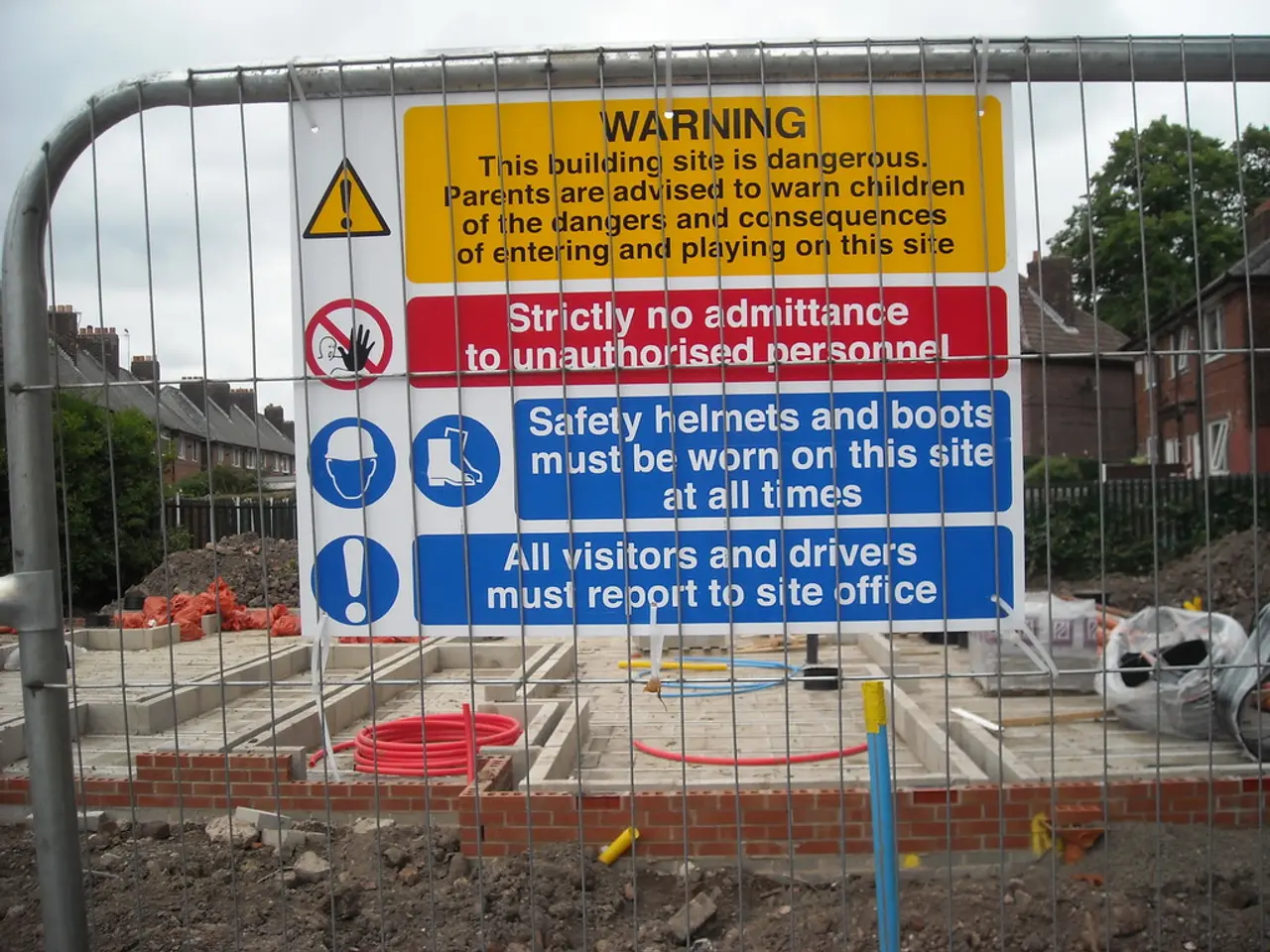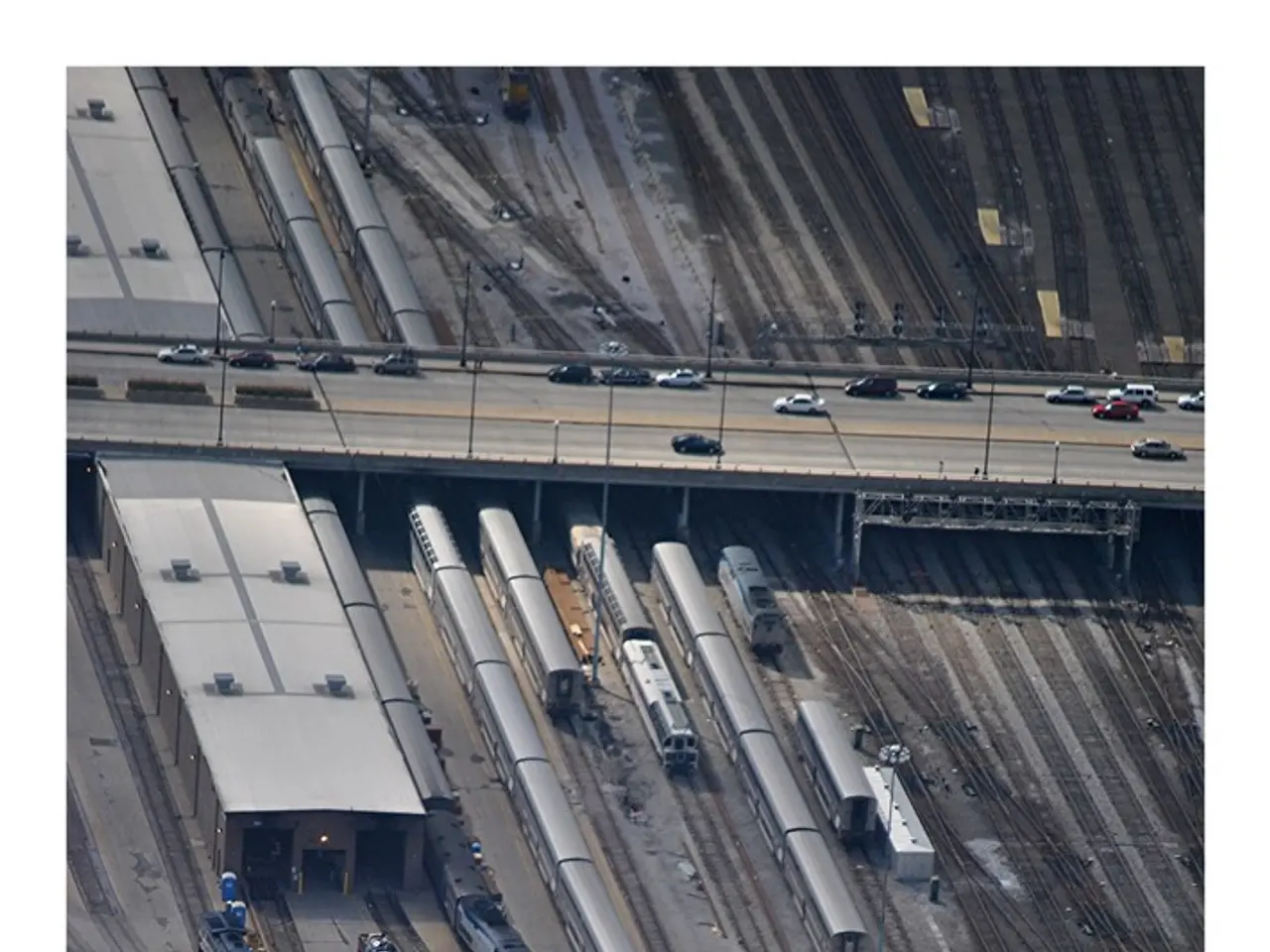Is it possible to secure a mortgage for land without the necessary building plans approved?
In the realm of property development, land without planning permission can present unique challenges for aspiring self-builders. Here's a breakdown of what you need to know when seeking mortgages for such land.
Firstly, it's essential to understand that lenders tend to approach land without planning permission with caution. This area is primarily for experienced developers, as the risks are higher. Opting for a plot with planning permission is a less fraught strategy, although it is likely more costly. However, building a home on a garden plot is another option, provided you can get planning permission.
When it comes to securing a mortgage for land without planning permission, specialist lenders are available, but they may charge higher interest rates. Fewer lenders are willing to lend without planning permission, reducing competition and potentially leading to less competitive rates.
Lenders usually offer lower LTV ratios (up to a maximum of 50 to 70%) for land without planning permission, requiring a larger deposit. This is due to the increased risk associated with these types of mortgages.
For those who prefer to pay cash for the land and then secure a mortgage once planning is achieved, it's recommended to work with a broker who specializes in self-build mortgages. Engaging with the local planning department can provide insight into the likelihood of obtaining planning permission.
Regarding Loan-to-Value (LTV) ratios and costs, LTV ratios for land mortgages typically range from 75% to 85% for self-build mortgages and up to about 80% for commercial mortgages. Agricultural mortgages sometimes require higher deposits, meaning lower LTVs, often around 50% deposit (50% LTV).
Specialist lenders may charge higher interest rates and fees to offset the risks, but exact costs vary widely based on the lender, borrower's creditworthiness, and specifics of the land. Consulting a broker specializing in land or self-build mortgages is crucial to find tailored offers and understand full cost structures.
In summary, when seeking mortgages for land without planning permission, it's advisable to consult specialist brokers who understand the risks and can present strong applications. A larger deposit may be required, and LTV ratios are likely to be lower than standard. The process may involve higher interest rates and fees, but working with a specialist broker can help navigate these challenges and secure the best possible terms.
- In the realm of property development, lenders tend to approach land without planning permission with caution, making it a challenge for aspiring self-builders, especially for those with little experience.
- Building a home on a garden plot is another option, if you can secure planning permission for the project, but be prepared for higher costs and lower LTV ratios.
- To secure a mortgage for land without planning permission, one can turn to specialist lenders, although they may charge higher interest rates and fees due to the increased risks associated with these types of mortgages.
- Engaging with a broker who specializes in self-build mortgages is key when choosing to pay cash for the land and then secure a mortgage once planning is achieved, as they can help navigate the complexities of the process.
- It's important to note that Loan-to-Value (LTV) ratios for land mortgages can be lower than standard, often ranging from 75% to 85% for self-build mortgages and up to about 80% for commercial mortgages, while agricultural mortgages sometimes require higher deposits, such as a 50% deposit (50% LTV).
- When dealing with specialist lenders and their often higher costs, consulting a broker who is well-versed in land or self-build mortgages is crucial to find tailored offers and understand the full details of the cost structures, as exact costs vary widely based on the lender, borrower's creditworthiness, and specifics of the land.




